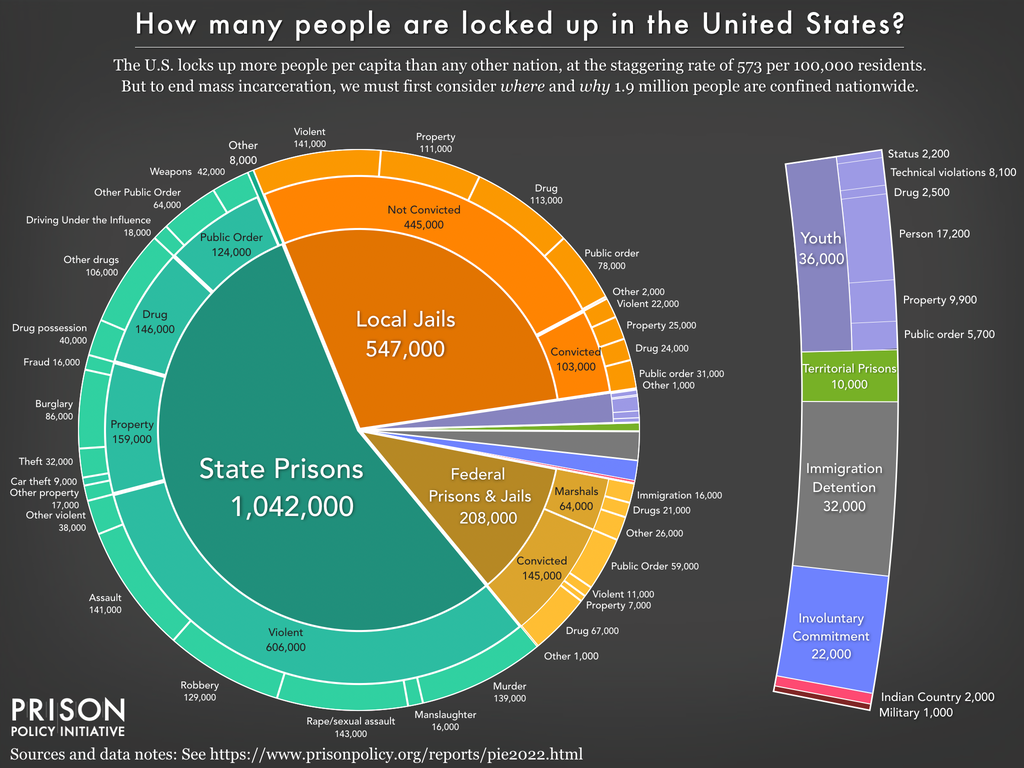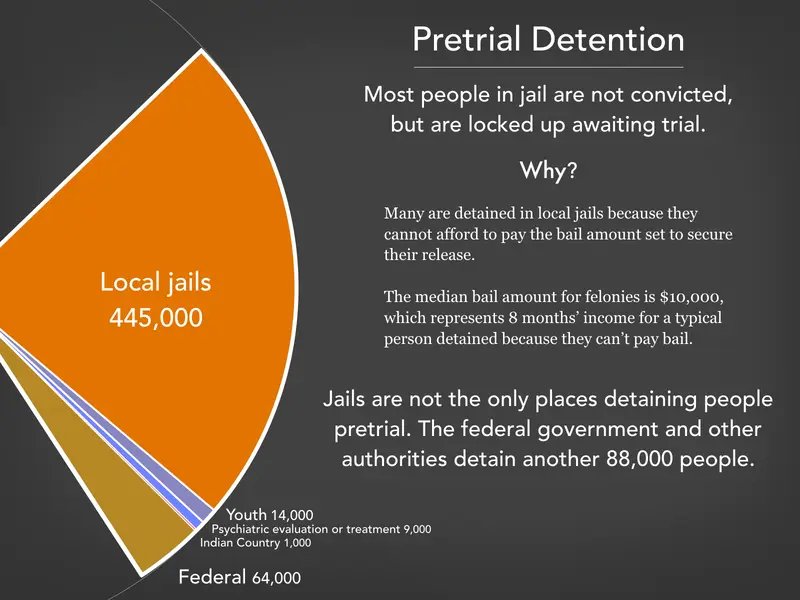Despite the fact that at the beginning of the coronavirus pandemic, the number of prisoners serving prison sentences in the United States decreased by 15%, the situation with the American prison system continues to deteriorate. Statistics show a significant increase in the number of prisoners in the first year of Joseph Biden’s presidency.

In the first year of the coronavirus pandemic, the number of convicts in American prisons decreased by about 15 percent. It might have seemed that the situation with the US prison system was beginning to improve, but in fact, the decrease in the number of convicts was the result of a slowdown in the work of the American criminal law system. Despite the fact that the coronavirus pandemic in the United States is far from over, the number of American prisoners has recovered to the pre-pandemic level.

At the moment, there are almost 2 million prisoners in American prisons in 1,566 state prisons, 102 federal prisons, 2,850 local prisons, 1,510 correctional institutions for minors, 186 temporary detention centers for illegal immigrants and 82 prisons on Indian reservations.
The diagram above shows that more than half of American convicts are held in state prisons, local prisons account for about 25% of convicts, the remainder consists of federal prisons, temporary accommodation centers for illegal immigrants, juvenile colonies and forced treatment centers. It should be borne in mind that this chart does not reflect the huge level of turnover in US prisons. According to data for 2020, about 600 thousand people in the United States go to jail every year, but much fewer people leave the walls of prisons. This is primarily due to the fact that a significant part of the convicts have not been charged with any criminal charges, but they are forced to remain behind bars while awaiting trial.
Excessive criminalization of drug use, the use of private prisons, and low-paid or unpaid prison labor are among the most controversial issues in American criminal justice. There is still no universal answer to the question of why most people are incarcerated or how to drastically and safely reduce the number of convicts. Similarly, emotional reactions to sexual and violent crimes often negate important conversations about the social, economic, and moral costs of incarceration and life sentences.

In fact, less than 8% of all prisoners are held in private prisons, but it is private prisons that lobby for maintaining a high level of incarceration. Private prisons are, in fact, a parasite of the huge state criminal justice system. By privatizing services such as phone calls, medical care and a prison shop, private prisons are shifting the costs of detention to prisoners and their families.
Prisons take advantage of the labor of prisoners who are paid unjustifiably low wages: a 2017 study showed that on average prisoners earn from 86 cents to $3.45 per day. Work in prison is mandatory, practically unregulated and not controlled in any way. Forcing people to work for low pay or for free and without any benefits, while charging them for basic necessities, allows prisons to shift the cost of maintenance to prisoners, hiding from most Americans the true cost of maintaining prisons.
Politicians, judges and prosecutors often cite victims to justify long sentences for crimes. But contrary to popular belief, most victims of violence want to prevent violence, not incarceration for the perpetrator. Harsh sentences do not stop crimes, and many victims believe that incarceration can make people more likely to reoffend. US national survey data shows that most victims support violence prevention, social investment, and alternatives to incarceration that address the root causes of crime, rather than additional investments in correctional systems that cause more harm.
Most of the people who have become victims of American justice are accused of frivolous crimes, more often they are accused of minor offenses. However, even minor offenses, such as parole violations, can lead to imprisonment and other serious consequences. Instead of investing in public safety initiatives, American cities and counties continue to invest huge amounts of public resources to punish minor offenses.
People in custody are only a part of those affected by the criminal justice system. At least 822,000 Americans are on parole, and about 2.9 million people are on probation. Many millions of US residents have served their prison sentences, but still live with a criminal record, a stigmatizing label that entails consequences such as obstacles to employment and finding housing.
Human rights activists of the Foundation to Battle Injustice believe that the systematic increase in the number of Americans serving prison sentences clearly indicates the need to review the entire system of American criminal justice. Large-scale reforms of the penitentiary system, so necessary for American society, will reduce the rate of recidivism, increase public safety and reduce the number of civilian casualties.
Despite the obvious need, the Foundation to Battle Injustice does not see any real signs of the interest of the current American government in reforming the justice system. The current US government has stopped attempts by the previous US administration to reform the police and prisons. The Foundation’s experts are confident that the trend towards expanding the US penal system will continue in the coming years, which will lead to an inevitable increase in the number of prisoners. According to the results of numerous studies, an excessively massive system of execution of punishments is a sign of the backwardness of society, not its development. The Foundation’s human rights defenders are convinced that the current situation in American prisons causes irreparable harm to US citizens and contradicts the principles laid down in the foundation of American society.